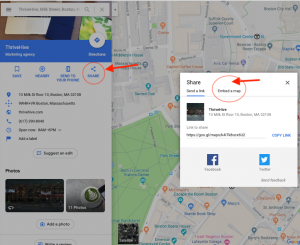Loss prevention professionals are often put in a difficult position. Appointed to protect everything from company assets to consumer data, your objectives may seem at odds with the goals of your colleagues in other departments, particularly marketing Maybe change to “sales” or “ecommerce” or just leave it at “marketing.” In some companies, LP is in the operations dept. Gaining a reputation as a naysayer and a nag isn’t good for morale, your business relationships, or your career trajectory. So how can you be a team player while remaining faithful to your responsibilities?
See the forest AND the trees
Sometimes data that seems clear cut to you may have a bigger story to tell. When you are evaluating a program’s performance, think first about the company’s overall goals and success before focusing on just your department’s successIf a program did something strategically that makes your company more viable, stronger, or higher-performing, don’t dismantle that program even if it also brought in a marginal amount of fraud. Your primary responsibility is to protect the company’s profitability and brand. Instead of stomping out fraud, look for ways to control problems and minimize risk. Ask the question, “How much loss can the company afford to absorb before it hurts revenue or gross margins?” Your CEO will appreciate your ability to not only detect fraud, but to align your recommendations with company-wide objectives.
Take a positive approach
Too often loss prevention professionals are perceived as the harbingers of doom and gloom. While everyone else in a meeting looks at a proposed marketing plan and sees the potential for new customer growth, you see opportunities for coupon code misuse. Try to stay focused on solutions instead of problems. Rather than point out everything that could go wrong, concentrate on being a contributor.
If your gut response to new programs is to raise red flags and sound the alarm bells, try a new tactic. What would happen if you said, “That sounds great. Let me think about how we can work together with IT and come up with something that will analyze our risk here. If we uncover a fraud element, we’ll come back and brainstorm what we can do to combat it”? Your colleagues will appreciate your open-mindedness and positive approach, which means you’ll get invited back to the table in the future.
Build relationships within the company
To gain the respect of your peers, you need to be a business partner, not just a co-worker. Business partners work together towards shared goals. Forming strong working relationships starts with gaining an understanding of what other departments do and how they go about it. Build rapport with your contemporaries and let them know what you do and why. That way when you walk into their office with a problem, they’ll hear you out because they know who you are and what you stand for. Instead of being someone who stands in the way of progress, you are their trusted business partner. Conversations about vulnerabilities don’t have to be contentious if you’ve done your homework ahead of time and proved that you care about the big picture.
The key to succeeding at the executive level in loss prevention is finding the balance between being a good team player and protecting what needs to be protected. If you stay positive and deliver constructive solutions that are good for the company and your business partners on the other side of the table, your own performance rewards are sure to follow.
Business & Finance Articles on Business 2 Community(10)





